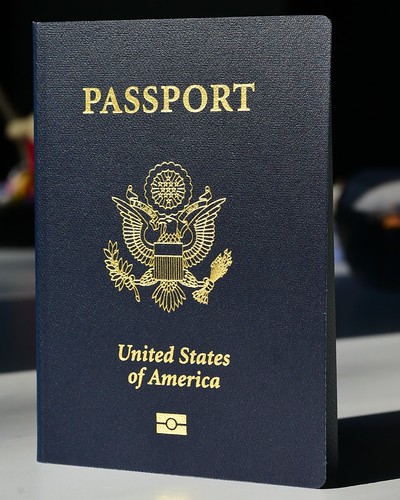This piece was reprinted by OpEd News with permission or license. It may not be reproduced in any form without permission or license from the source.
By Jeremy Loffredo
At least two airlines are testing CommonPass, a new technology designed to let passengers prove they've tested negative for COVID-19 before they fly.
Proponents tout the CommonPass technology as a panacea for global travel in a pandemic world. They hope that a public weary of COVID-19 lockdowns and restrictions but still fearful of the virus will embrace it.
But civil rights and privacy groups warn against any technology that monitors individuals' movements and activities. That includes any digital health pass, like CommonPass, that can be adapted to provide proof of vaccination.
Here's how CommonPass works. An individual takes a COVID-19 test at an approved lab, then uploads the results to a smartphone. At the airport, airline staff and border officials scan a QR code from the phone, which certifies that the passenger is COVID-19 free.
The groups behind CommonPass Common Project Foundation and the World Economic Forum say the technology has the potential to create a universal digital platform for COVID-19 testing that, if adopted across all governments, could hasten the reopening of international borders.
As it stands now, each government determines its own rules and procedures for quarantines and border entry. That's unacceptable, according to the World Economic Forum's head of mobility, Christoph Wolff. In a statement, Wolff said: "Individual national responses will not be sufficient to address this global crisis."
The Electronic Frontier Foundation, a nonprofit that advocates for civil liberties in a digital world, takes a different view. In May, the group stated its opposition to any type of "immunity passport" that would require "people to present supposed proof of immunity to COVID-19 in order to access public spaces, work sites, airports, school or other venues."
Electronic Frontier Foundation argues that such technology threatens privacy and "would be a significant step toward a system of national digital identification that can be used to collect and store our personal information and track our location."
The American Civil Liberties Union similarly warned against "immunity surveillance infrastructure" and "conditioning travel on COVID-19 immunity."
Still, proponents like Dr. Bradley Perkins, former chief strategy and innovation officer at the U.S. Centers for Disease Control and Prevention and now chief medical officer for Common Project Foundation argue that proof-of-immunity technology is the solution to opening up borders. Perkins told the travel magazine, Afar:
"Without the ability to trust COVID-19 tests and eventually vaccine records across international borders, many countries will feel compelled to retain full travel bans and mandatory quarantines for as long as the pandemic persists."
With suicides, clinical depression, domestic violence and small business closures on the rise during COVID-19 lockdowns and travel restrictions, will a public hungry for a "return to normal" side with civil liberties groups? Or will they see CommonPass as a reasonable trade-off for increased mobility and perceived safety?
We'll soon find out. On Oct. 8, two airlines launched trial runs. United Airlines tested CommonPass with volunteers flying between New York and London. Cathay Pacific did the same for passengers flying between Hong Kong and Singapore. The U.S. Customs and Border Patrol and the U.S. Centers for Disease Control and Prevention observed the process.
CommonPass said in a press release that after the trials it plans to expand to more airlines and routes across the globe. Right now it's limited to certifying negative COVID-19 tests. But in the future, CommonPass will be able to certify proof of vaccination, the company said. This means that even if a future COVID-19 vaccine is not mandated globally, airlines could require CommonPass for anyone wishing to travel, domestically or internationally.
(Note: You can view every article as one long page if you sign up as an Advocate Member, or higher).






